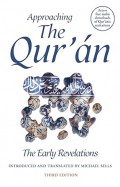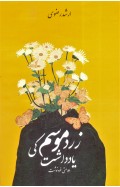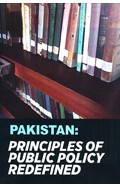Governing Islam: Law, Empire, and Secularism in Modern South Asia
By: Julia Stephens
-
Rs 4,245.75
- Rs 4,995.00
- 15%
You save Rs 749.25.
Due to constant currency fluctuation, prices are subject to change with or without notice.
Governing Islam traces the colonial roots of contemporary struggles between Islam and secularism in India, Pakistan, and Bangladesh. The book uncovers the paradoxical workings of colonial laws that promised to separate secular and religious spheres, but instead fostered their vexed entanglement. It shows how religious laws governing families became embroiled with secular laws governing markets, and how calls to protect religious liberties clashed with freedom of the press. By following these interactions, Stephens asks us to reconsider where law is and what it is. Her narrative weaves between state courts, Islamic fatwas on ritual performance, and intimate marital disputes to reveal how deeply law penetrates everyday life. In her hands, law also serves many masters - from British officials to Islamic jurists to aggrieved Muslim wives. The resulting study shows how the neglected field of Muslim law in South Asia is essential to understanding current crises in global secularism.
Governing Islam traces the colonial roots of contemporary struggles between Islam and secularism in India, Pakistan, and Bangladesh. The book uncovers the paradoxical workings of colonial laws that promised to separate secular and religious spheres, but instead fostered their vexed entanglement. It shows how religious laws governing families became embroiled with secular laws governing markets, and how calls to protect religious liberties clashed with freedom of the press. By following these interactions, Stephens asks us to reconsider where law is and what it is. Her narrative weaves between state courts, Islamic fatwas on ritual performance, and intimate marital disputes to reveal how deeply law penetrates everyday life. In her hands, law also serves many masters - from British officials to Islamic jurists to aggrieved Muslim wives. The resulting study shows how the neglected field of Muslim law in South Asia is essential to understanding current crises in global secularism.
Governing Islam: Law, Empire, and Secularism in Modern South Asia
By: Julia Stephens
Rs 4,245.75 Rs 4,995.00 Ex Tax :Rs 4,245.75
Zubin Mehta: A Musical Journey (An Authorized Biography)
By: VOID - Bakhtiar K. Dadabhoy
Rs 892.50 Rs 1,050.00 Ex Tax :Rs 892.50
Giants: The Global Power Elite
By: Peter Phillips & Project Censored
Rs 2,545.75 Rs 2,995.00 Ex Tax :Rs 2,545.75
Untethered Soul: The Journey Beyond Yourself
By: Michael Singer
Rs 3,595.50 Rs 3,995.00 Ex Tax :Rs 3,595.50
The Messenger: The Meanings of the Life of Muhammad
By: Tariq Ramadan
Rs 2,236.00 Rs 2,795.00 Ex Tax :Rs 2,236.00
Rumi :The Big Red Book The Great Masterpiece Celebrating Mystical Love And Friendship -
By: Coleman Barks
Rs 2,156.00 Rs 2,695.00 Ex Tax :Rs 2,156.00
Most Beautiful Names Of Allah
By: Samira Fayyad Khawaldeh
Rs 1,705.50 Rs 1,895.00 Ex Tax :Rs 1,705.50
Giants: The Global Power Elite
By: Peter Phillips & Project Censored
Rs 2,545.75 Rs 2,995.00 Ex Tax :Rs 2,545.75
Untethered Soul: The Journey Beyond Yourself
By: Michael Singer
Rs 3,595.50 Rs 3,995.00 Ex Tax :Rs 3,595.50
The Volunteer : The True Story of the Resistance Hero who Infiltrated Auschwitz - (PB)
By: Jack Fairweather
Rs 1,270.75 Rs 1,495.00 Ex Tax :Rs 1,270.75
Dhul-Hijjah Adventures with Binyamin and Chester
By: Mehreen Tariq
Rs 1,530.00 Rs 1,700.00 Ex Tax :Rs 1,530.00
SUKHAN E IFTIKHAR: KULIYAT IFTIKHAR ARIF
By: Iftikhar Arif
Rs 4,050.00 Rs 4,500.00 Ex Tax :Rs 4,050.00
Who Is Government? - The Untold Story of Public Service
By: Michael Lewis
Rs 5,995.00 Ex Tax :Rs 5,995.00
Approaching the Qur'an - The Early Revelations (third edition)
By: Michael Sells
Rs 10,795.50 Rs 11,995.00 Ex Tax :Rs 10,795.50
The Palestine-Israeli Conflict - A Beginner's Guide
By: Dan Cohn-sherbok
Rs 2,515.50 Rs 2,795.00 Ex Tax :Rs 2,515.50
Madonna in a Fur Coat: Sabahattin Ali (PENGUIN CLASSICS)
By: Sabahattin Ali
Rs 2,245.50 Rs 2,495.00 Ex Tax :Rs 2,245.50
PAKISTAN: PRINCIPLES OF PUBLIC POLICY REDEFINED
By: Zafar U. Ahmed
Rs 1,345.50 Rs 1,495.00 Ex Tax :Rs 1,345.50
Gray Matters - A Biography of Brain Surgery
By: Theodore Schwartz
Rs 5,665.50 Rs 6,295.00 Ex Tax :Rs 5,665.50
Rebel: My Escape from Saudi Arabia to Freedom
By: Rahaf Mohammed
Rs 1,975.50 Rs 2,195.00 Ex Tax :Rs 1,975.50
The "I Love My Air Fryer" Comfort Food Recipe Book - From Chicken Parmesan to Small Batch Chocolate Chip Cookies, 175 Easy and Delicious Recipes
By: Aileen Clark
Rs 4,045.50 Rs 4,495.00 Ex Tax :Rs 4,045.50
Don Quixote's Delusions: Travels in Castilian Spain
By: Miranda France
Rs 420.75 Rs 495.00 Ex Tax :Rs 420.75
Victorian Modern - A Design Bible for the Victorian Home
By: Jo Leevers
Rs 10,795.50 Rs 11,995.00 Ex Tax :Rs 10,795.50
Zubin Mehta: A Musical Journey (An Authorized Biography)
By: VOID - Bakhtiar K. Dadabhoy
Rs 892.50 Rs 1,050.00 Ex Tax :Rs 892.50
Governing Islam: Law, Empire, and Secularism in Modern South Asia
By: Julia Stephens
Rs 4,245.75 Rs 4,995.00 Ex Tax :Rs 4,245.75
Giants: The Global Power Elite
By: Peter Phillips & Project Censored
Rs 2,545.75 Rs 2,995.00 Ex Tax :Rs 2,545.75
Untethered Soul: The Journey Beyond Yourself
By: Michael Singer
Rs 3,595.50 Rs 3,995.00 Ex Tax :Rs 3,595.50












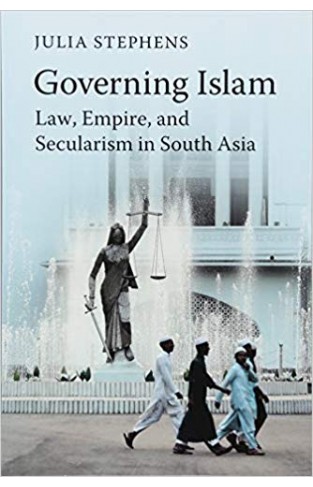
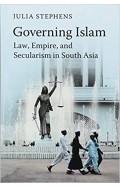
-120x187.jpg?q6)









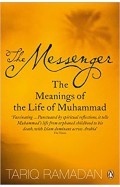



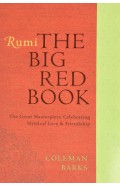
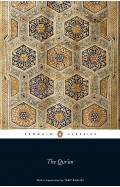
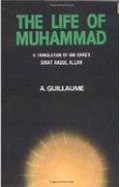

-120x187.jpg?q6)







